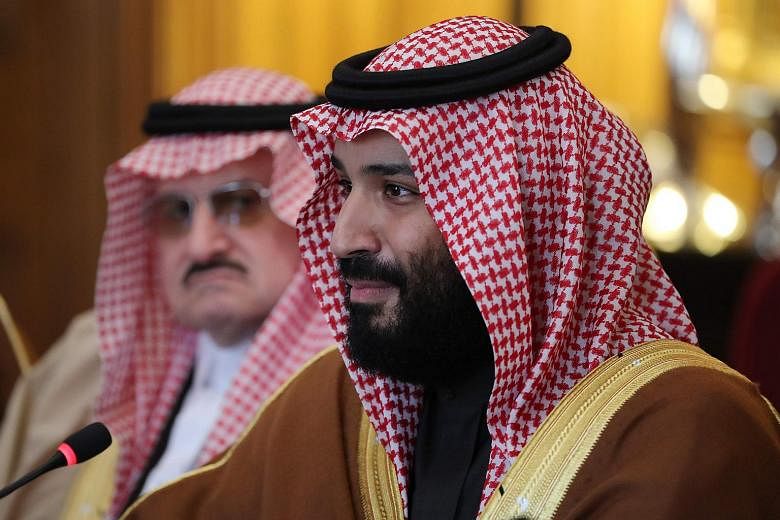ISLAMABAD (DAWN/ASIA NEWS NETWORK) - Saudi Crown Prince Mohammed bin Salman is in the United States for a rebranding exercise of a kingdom he already has de facto control of.
The ambitious Saudi heir appears to genuinely want to modernise parts of society, but his hawkish views on Iran, headlong rush into a military quagmire in Yemen that has turned into a humanitarian disaster, and determination to purge potential rivals in an anti-corruption crackdown suggest that his country's future is very much in the balance.
Add to that the lack of any political reforms in his domestic agenda and in many ways the new Saudi Arabia could very much come to resemble the old Saudi Arabia: an absolute monarchy with concessions to preferred sections of society.
Where those sections once were a deeply regressive clergy, in a Saudi Arabia with a younger population that is chafing under extreme social restrictions, the crown prince is seeking younger allies among the people.
Political and human rights define a modern society.
The Arab Spring sent shockwaves through Middle Eastern monarchies and authoritarian regimes precisely because it was an attempt for the people of those countries to try and take control of the governments that ruled them.
A furious pushback by many regimes and a sharpening of tensions between Sunni-led governments and Iran has now turned spring into winter.
But the underlying yearning of the Arab people for political rights, which alone can guarantee that social and economic rights are not snatched away or selectively bestowed, remains.
If the crown prince wants to truly take his place among progressive Arab rulers, he will need to carve a path towards not just greater personal freedoms for the Saudi people, but also political rights.
Piecemeal efforts will not suffice as attempts in other Arab monarchies have demonstrated.
To be sure, the social changes under way in Saudi Arabia are not insignificant.
While Saudi society will take many decades to achieve true gender equality, it is remarkable that a crown prince and future king has spoken publicly about women being equal to men, as Mohammed bin Salman has.
The efforts to free women from decades of state-sanctioned repression are commendable.
Saudi women celebrating the right to drive can be an enduring symbol of the early 21st century.
Indeed, other conservative regimes should take note of women seeking greater rights - the tide of history is inexorable when it comes to one half of humanity having the same rights and privileges as the other.
Equal rights and rights for all is a fight that men and women can wage together - after all, states exist to serve their people.
Dawn is a member of The Straits Times media partner Asia News Network, an alliance of 23 news media entities.

